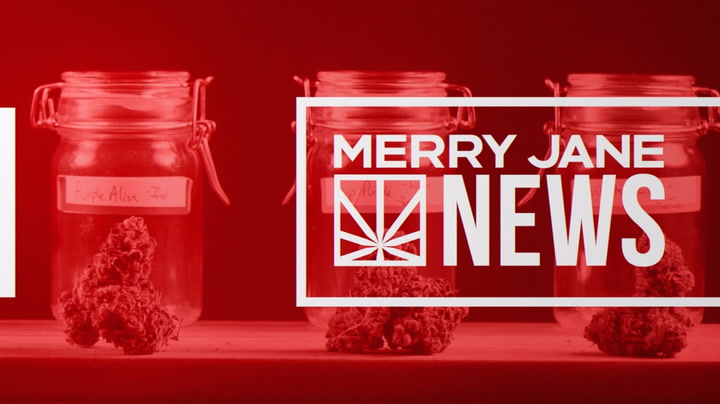Image via
Republican Senators are trying to reignite the War on Drugs with a bill that would force social media companies to report drug-related content directly to the DEA.
Senator Ron Wyden (D-OR) sounded the alarm bells about this new bill, officially known as the Cooper Davis Act, last week. If passed, the legislation would amend the Controlled Substances Act (CSA) to force social media companies and other communications service providers to report any user that references the manufacturing or sale of certain illegal drugs to the DEA. The bill’s sponsors are also attempting to pass it by a unanimous consent motion, which would automatically approve the bill without allowing Senators to discuss or vote on it.
The Cooper Davis Act would not “require” companies to narc on their users, but it would punish them if they fail to do so. If a company is found guilty of failing to file a report about relevant drug-related content, the DEA can fine them up to $190,000. That fine can be doubled to $380,000 for a second offense. Companies wouldn’t even be required to provide any specific burden of proof when reporting drug content, just a “reasonable belief” that any such content might be drug-related.
The bill was designed to crack down on online fentanyl sales, but Wyden believes that it “fails to offer serious solutions to this epidemic.” In a formal promise to block the unanimous consent motion, the Senator warns that the bill “would mandate that platforms scan their users’ communications for anything that could be interpreted as being about selling or using drugs.”
“Given this country’s experience with the failed ‘War on Drugs’ it is easy to predict that communities of color will disproportionately have their conversations surveilled and referred for prosecutions, which is why it is opposed by civil rights groups, including the ACLU, NAACP and Leadership Conference on Civil and Human Rights,” Wyden continued.
For once, this new War on Drugs measure does actually seem to be targeted at fentanyl, meth, and other addictive drugs instead of weed. Communications companies would only be required to report suspected sales of counterfeit drugs, meth, fentanyl, and other opioids. The bill would not fine companies for failing to narc on cannabis and psychedelics users, at least not in its current form. But although the bill is specifically targeted at drug dealers, there are no protections in place to stop companies from ratting out everyday users to the feds.
The bill would essentially force social media companies to decide which posts are referencing drugs and which aren’t – a task that they would probably assign to AI algorithms. The DEA would then be tasked with sifting through every single flagged account and deciding which of them warrants further investigation. To successfully perform that task, the feds must accurately decipher current drug slang. And judging by the DEA’s recent attempt to decode drug-related emoji for parents, they clearly aren’t up to that task.
“Forcing a platform to decide what represents a drug transaction means that lots of innocent people will be referred for investigation and prosecution,” Sen. Wyden wrote. “Finally, the reporting structure of this legislation is likely to produce large numbers of meritless referrals to the Drug Enforcement Administration and do little to address the real causes of the fentanyl epidemic or protect vulnerable communities.”
“People on online services often post things that are untrue or exaggerated in order to promote a persona—and as the DEA has observed, illegal activity is often transacted in coded communication that is not easily decipherable,” the ACLU wrote in a letter advocating against the bill. “Online services are not qualified to determine a user’s intent when they post photos, videos, or other communications to online services… The criminal legal system has always enforced drug crimes disproportionately in Black and Brown communities. This bill will result in the same disparate outcomes.”
Social media companies are already going out of their way to prohibit drug-related content. Facebook and Instagram have a long history of punishing users who make any sort of reference to weed – even going so far as to delete the accounts of legal cannabis companies. Meta’s new Threads app even automatically refers anyone who searches for weed to rehab. Most other popular services also censor drug content, with the notable exception of Twitter (now rebranded as X), which now allows cannabis-related ads.











